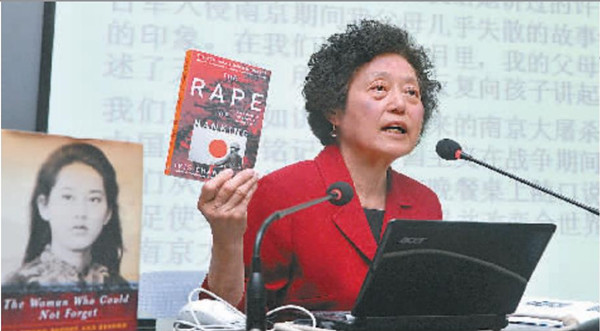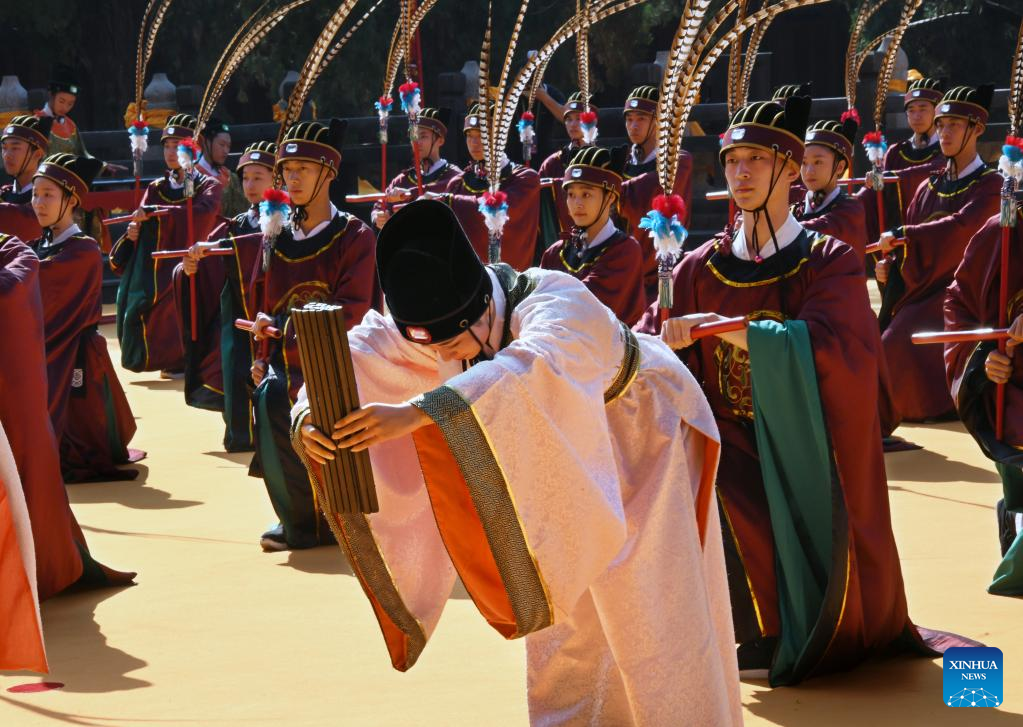
Project coordinator Shen Zhengrong has been covering the history of Nanjing Massacre for 23 years since 1999.
“Everyone dies twice: the first time when their physical body expires; and the next time when their name is spoken for the very last time,” Iris Chang once wrote.
Ying-Ying Chang couldn’t stop tears from falling when reading the words after the author committed suicide. She then decided to write a book to record her daughter's true life. In addition, she made active contribution to efforts to spread the truth of the massacre in the West, a mission that her daughter also worked hard for. More and more people have followed her footsteps. In the video meeting, I saw the Iris flower and the reading room in honor of the author. I felt a strength, the strength to face the truth of history, the strength to pursue justice and peace, and the strength of a mother's love.
Reporter Fu Yanyan
In late August this year, the WWII Pacific War Memorial Hall in San Francisco opened "The Power of One", a reading room commemorating the late Chinese-American writer Iris Chang. I heard from many interviewees about the author’s international influence so I paid special attention to the development.
Later, I contacted the curator Zhao Xiangjun for the reading room. She talked about those providing help to Iris for her book, the Rape of Nanking: The Forgotten Holocaust of World War II, those inspired by her at the Global Alliance For Preserving the History of WWII in Asia, and volunteers at a memorial park named after the late Chinese-American writer and the newly opened reading room. Those who cannot remember the past are condemned to repeat it, and this is the meaning of remembering history.
Reporter Jiang Chuyan
When I saw the photo of Iris Chang, my first impression was that she was so beautiful, with her long black hair like a waterfall, an upright posture and a confident look. When I read the history of the Nanjing Massacre, I once had a nightmare because of the bloody scenes in the book. I realized that just reading about the past events could bring a great shock to a person.

At the exhibition, I met many people who were in contact with Iris Chang in the past and they have been influenced by her in one way or another. As I marvel at the photo of Chang, her calm and elegance, I can’t help thinking of the famous quote - “some people are dead, but he is still alive.”
As I continue to learn about and report on the Nanjing Massacre and Chang, I come to understand more about Nanjing, the city where I grew up.
Reporter Qian Yingying
This is the first time for me to cover the national memorial day for the Nanjing Massacre victims. I had bad dreams on the first night after reading materials about the atrocities as I could not forget those violent scenes and felt sad about the death of Iris Chang.

In my impression, Iris Chang wrote about the Nanjing Massacre in English, a name both familiar and unfamiliar to me. After interviewing her friends and those who have the same mission, I realize that she as a human rights activist also faced fear herself but she never let it stop her from pursuing justice.
As I collected information and interviewed more people, the author became more concrete and vivid in my mind. I admire her determination to speak out for history and peace, and I’ve felt her idea of "the power of one."
Contact us at english@jschina.com.cn




















